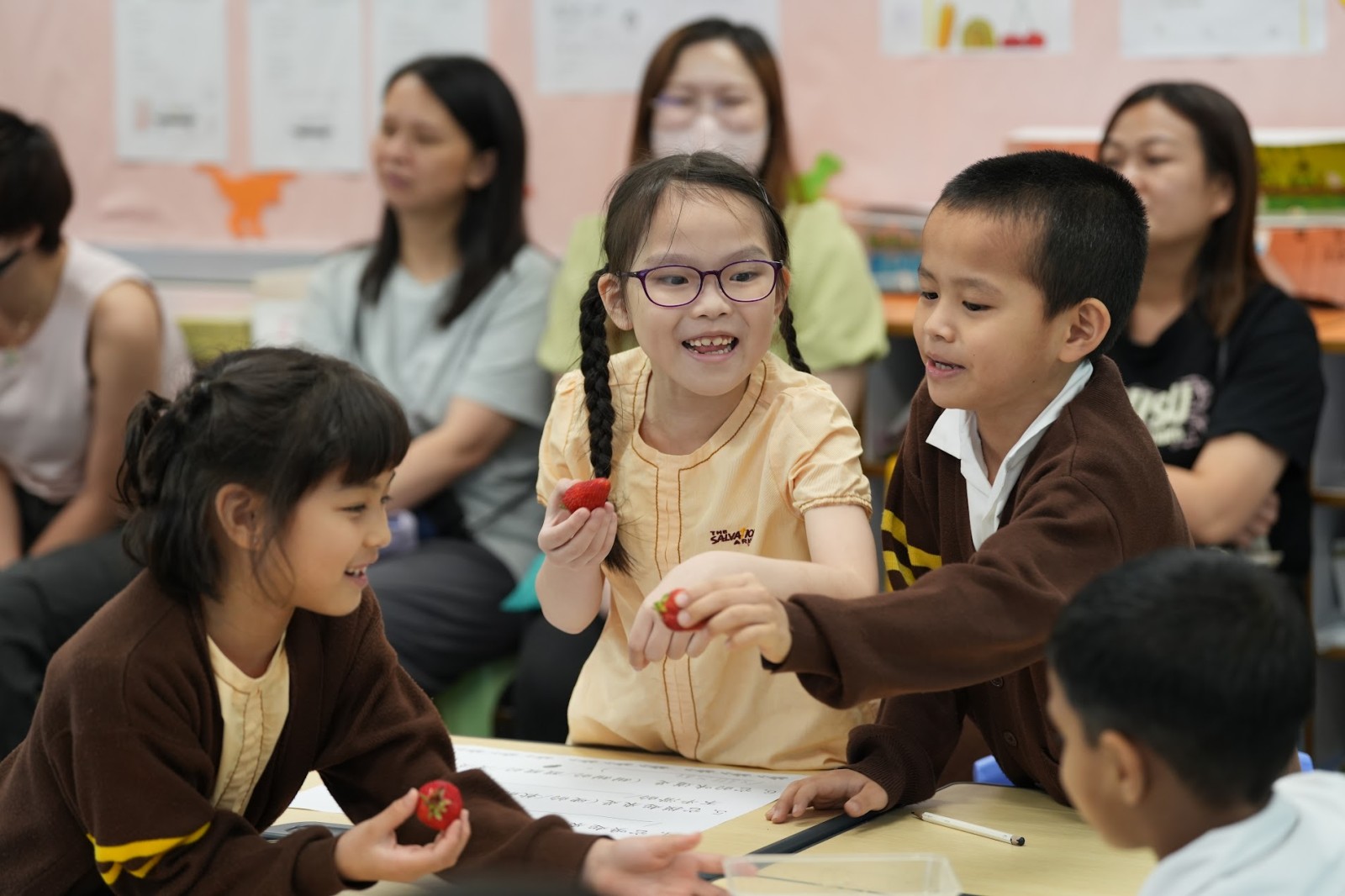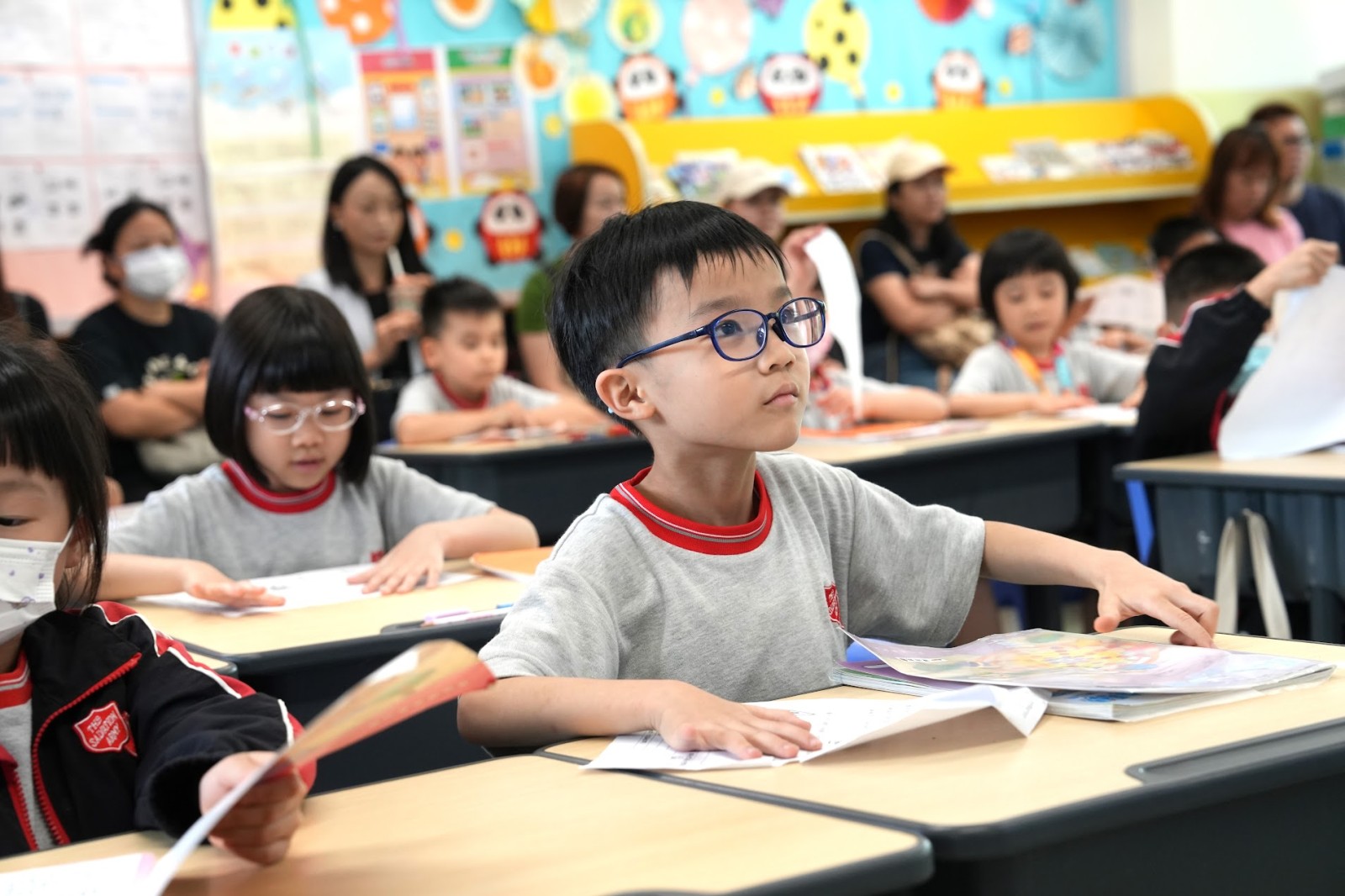 |
 |
Curriculum Development Focus and Student Holistic Development
In accordance with educational development trends and the needs of students' holistic development, the school has established key curriculum development focuses, including strengthening value education, cultivating students' self-directed learning abilities, and promoting STEAM education. We actively integrate self-learning elements across all subjects, fostering students' habits of pre-class preparation. Through the implementation of e-learning, students can use online platforms and resources after class to consolidate or extend their learning, providing diverse learning experiences that help cultivate lifelong learning abilities. To introduce more innovative thinking and flexibility, each subject group develops school-based curricula according to students' needs and abilities. Furthermore, the school designs diversified assessments aligned with learning objectives to evaluate students' learning progress, such as assignments, classroom observations, reading aloud, and practical assessments. The school attempts to use open and flexible assessment models, such as student self-assessment, peer assessment, or parent evaluation. Teachers provide timely and specific feedback to help students improve their learning performance.
Six Principles of Small Class Teaching
-
Clear Learning Objectives
- Students are informed of the teaching objectives, content, and requirements in advance, allowing them to set personal goals according to their learning progress.
-
Effective Questioning
- Utilizing effective and open-ended questions can guide students to process and reflect on their answers, triggering higher-order thinking.
-
Active Student Participation
- Students engage in hands-on, inquiry-based group learning tasks/activities in class, constructing knowledge through collaborative learning methods.
-
Cooperative Learning to Enhance Interaction
- Common teaching strategies for cooperative learning include Think-Pair-Share, Numbered Heads Together, Pair Check, Jigsaw, etc.
-
Feedback and Reflection
- Through positive feedback and constructive suggestions, students are guided to improve and reflect on their learning.
-
Increased Assessment to Promote Learning
- Utilizing various methods of outcome presentation, such as reports, oral presentations, project displays, demonstrations, and effectively using online platforms and resources, to consolidate or extend learning, while addressing student diversity to promote learning assessments.
Classroom Features
-
Pre-Class Preparation:
- Effectively using online learning platforms, browsing website information, watching videos, reading extracurricular materials, and other resources as avenues for preparation, igniting interest and motivation for new topics.
-
In-Class Learning:
- Creating an atmosphere of student-led learning through sharing pre-class preparation and introducing new topics. Simultaneously, employing cooperative learning and emotional teaching strategies to promote student-student and teacher-student interactions. By engaging in group participation, students cultivate cooperation and communication skills. Additionally, flexibly utilizing diverse learning materials and strategies, such as audio, videos, photos, images, and text materials, while incorporating engaging role-playing and group activities to enhance student motivation.
-
Post-Class Extension:
- Students make good use of after-class time, utilizing online platforms and resources to consolidate or extend their learning, enhancing attention to student diversity, promoting learning assessments, and improving students' self-directed learning abilities and habits.

